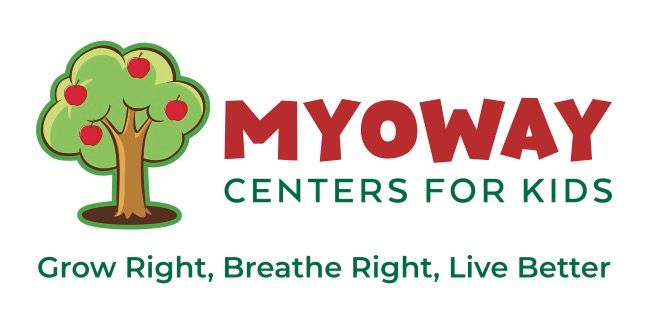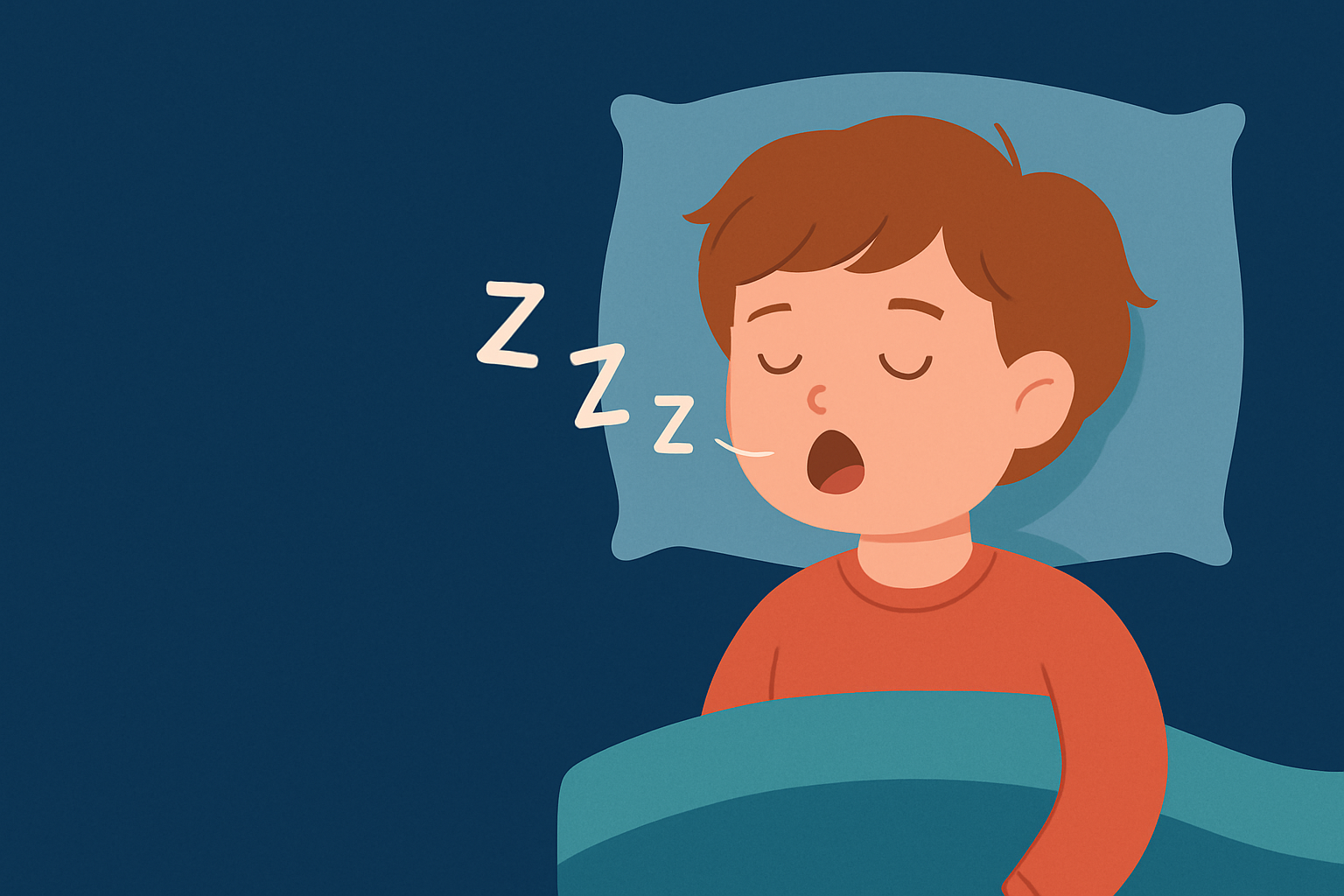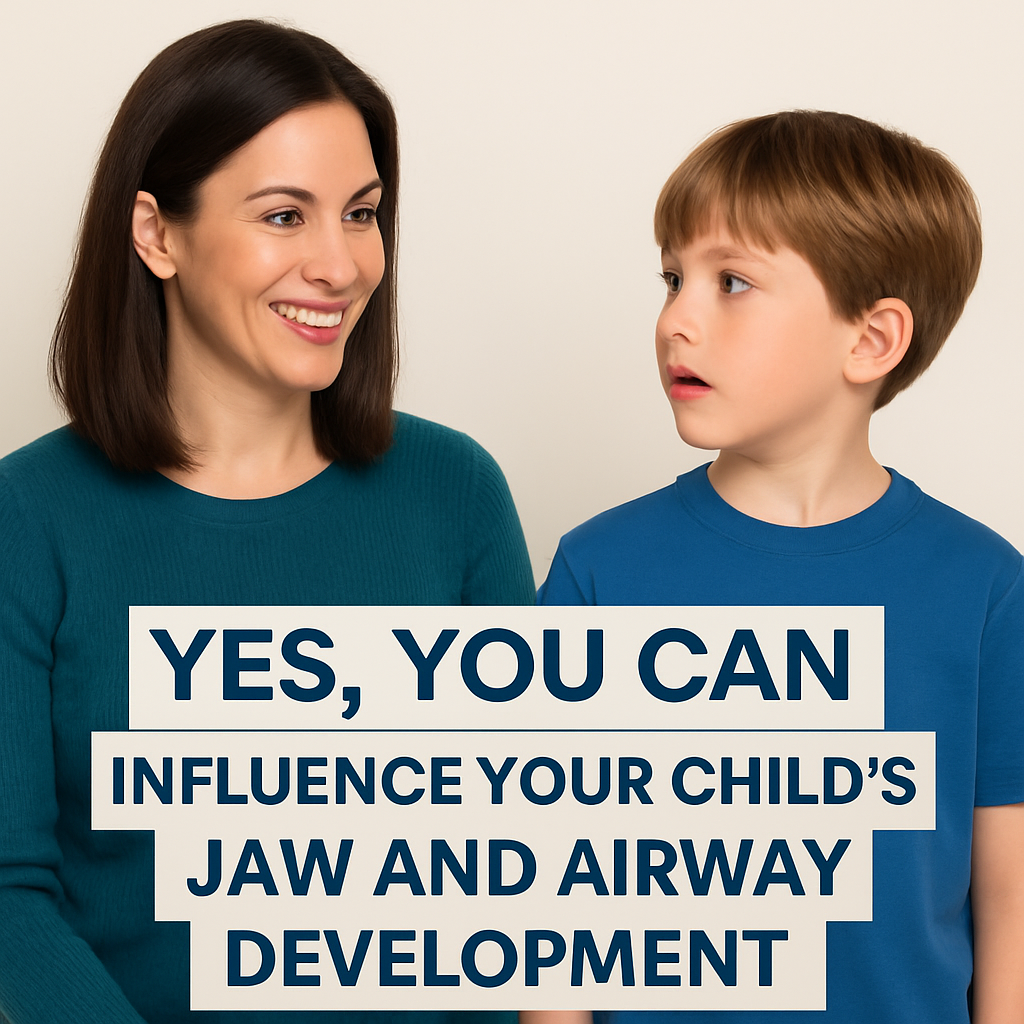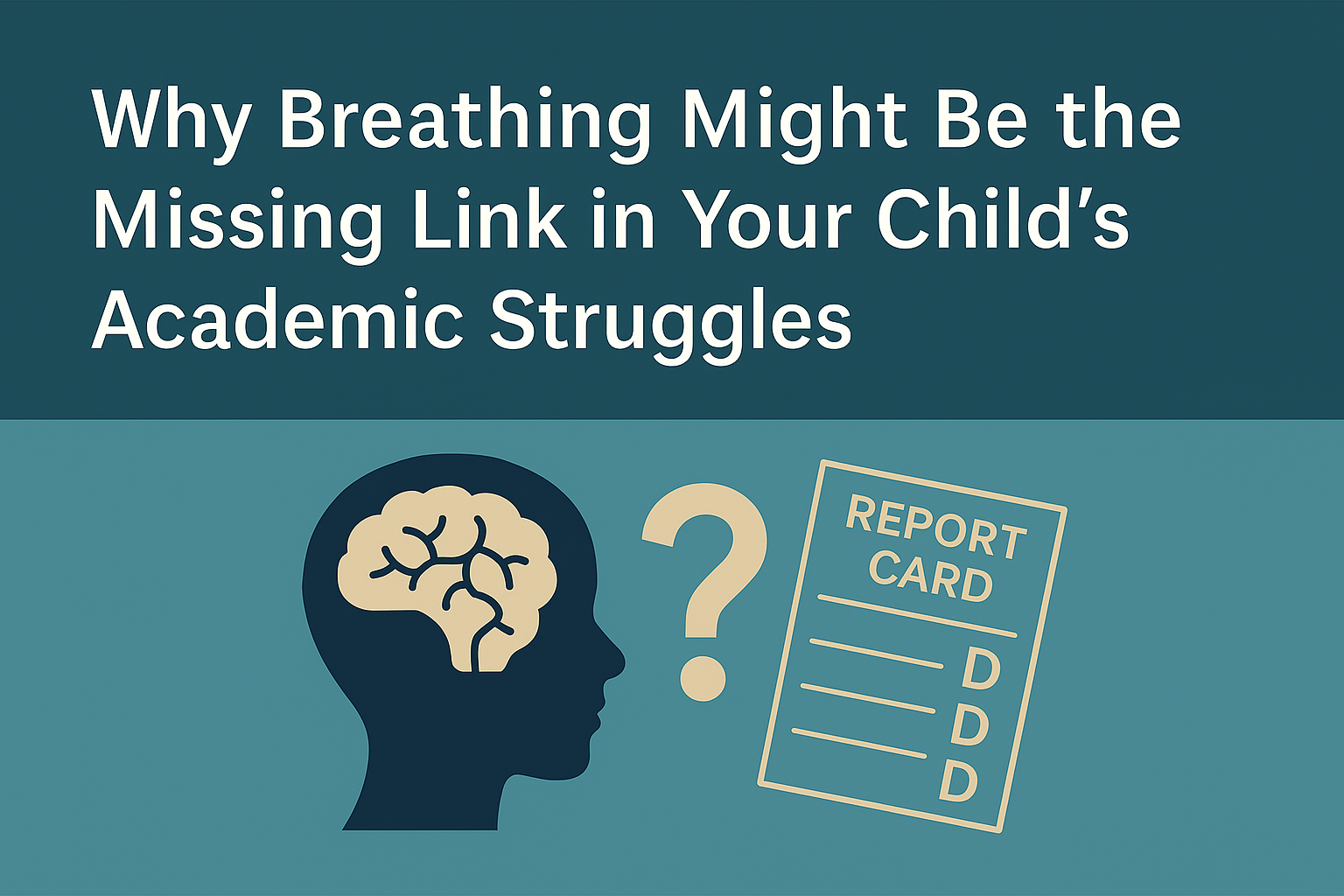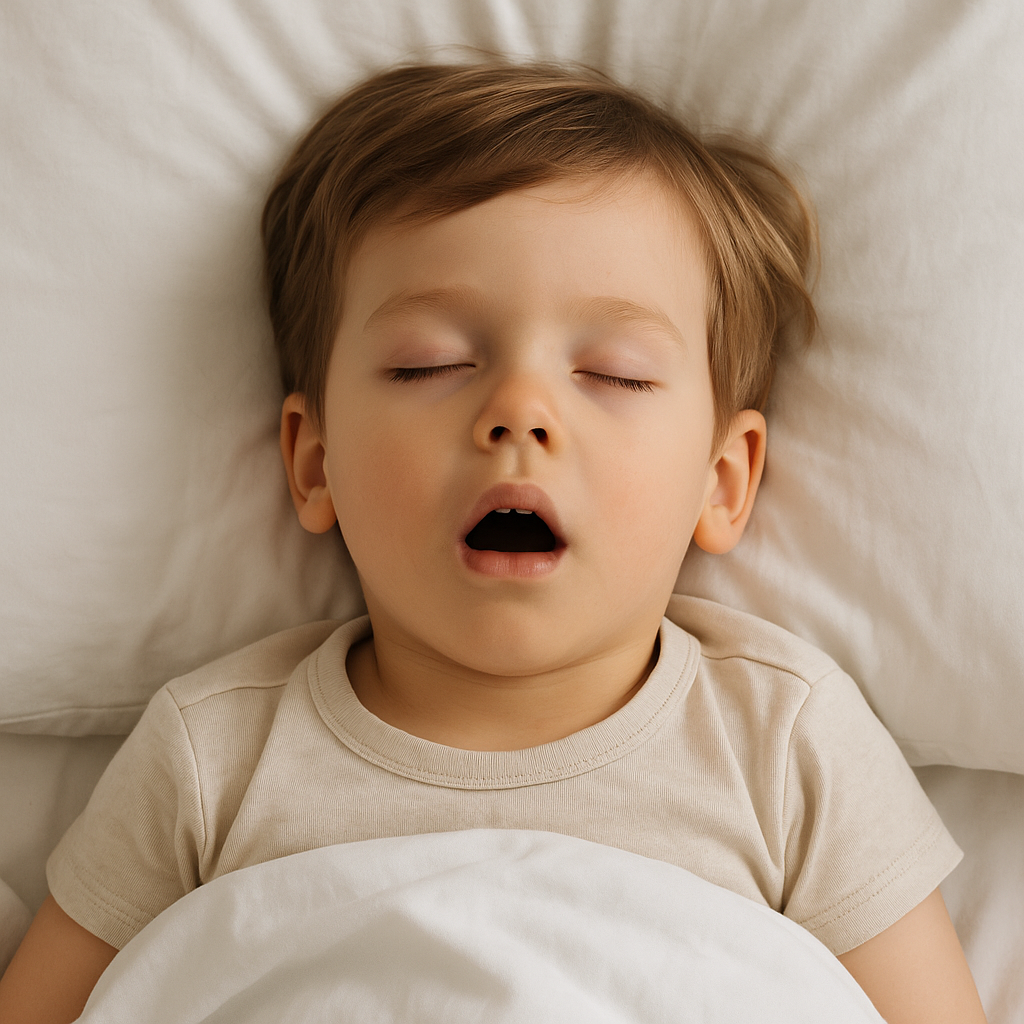How Mouth Breathing Affects Your Child’s Brain Development and Mental Health
Many parents notice their child snores, breathes through their mouth, or has oral habits like thumb sucking or nail biting. These might seem like small issues, but they could point to a larger and more critical concern.
Mouth breathing in kids is not just a surface-level problem. It has the potential to impact how the brain develops, how a child behaves, and how they process emotions. Over time, if left unaddressed, mouth breathing can interfere with sleep, learning, and long-term mental health.
This article explores how breathing through the mouth can disrupt a child’s development and how early intervention can support a healthier future.
The Overlooked Connection Between Breathing and Brain Health
Breathing is one of the most fundamental functions of life, yet many people do not realize how it affects brain growth. Children’s brains are rapidly developing, especially in the first 12 years of life. During this time, the quality of their breathing plays a major role in how well they sleep, regulate emotions, and learn.
When a child breathes through their mouth instead of their nose, the body absorbs oxygen less efficiently. This means that even if your child is sleeping through the night, their brain may not be getting the deep, restorative rest it needs.
Poor oxygenation during sleep can lead to:
- Brain fog
- Behavioral challenges
- Difficulty concentrating
- Mood regulation problems
- Hyperactivity that may be misdiagnosed as attention-related disorders
restricted breathing during sleep can interfere with the brain’s ability to develop as it should. The brain may adapt to chronic stress and low oxygen, but often in ways that lead to emotional or behavioral consequences.
Why Mouth Breathing Happens in Children
There are many reasons why a child might start breathing through their mouth. Some begin during allergy season or after frequent illnesses. In other cases, the habit forms due to structural limitations in the airway or jaw.
Common causes of mouth breathing in kids include:
- Enlarged tonsils or adenoids
- Narrow palate or underdeveloped jaw
- Chronic nasal congestion
- Allergies
- Poor tongue posture
- Prolonged thumb sucking or pacifier use
Over time, mouth breathing becomes more than a habit. The face, jaw, and airway adapt to the child’s breathing pattern. This leads to changes in muscle tone and bone growth that make nasal breathing more difficult.
Early Warning Signs Parents Should Look For
Recognizing mouth breathing early gives families the best chance to intervene. In many cases, symptoms appear in ways that may not seem related to breathing at first.
Here are some signs that may indicate mouth breathing or airway concerns:
- Snoring or noisy breathing during sleep
- Sleeping with the mouth open
- Drooling on the pillow
- Frequent waking during the night
- Daytime fatigue or mood swings
- Thumb sucking or nail biting past age four
- Picky eating or sensitivity to food textures
- Chronic nasal stuffiness
- Dark circles under the eyes
- Forward head posture
- Speech delays or unclear articulation
These symptoms may be dismissed as typical behavior. However, when viewed together, they often point to deeper issues with jaw and airway development.
The Mental and Emotional Effects of Poor Breathing
Research continues to show strong links between mouth breathing, poor sleep, and mental health challenges in children. Sleep-disordered breathing has been associated with issues like inattention, anxiety, learning difficulties, and emotional dysregulation.
Children who do not get restorative sleep often struggle in the classroom, at home, and in social situations. They may appear defiant or unfocused when they are simply exhausted. Some are misdiagnosed with attention-deficit disorders or emotional conditions.
In many cases, families report dramatic improvements in behavior, sleep, and mood once their child begins breathing through their nose again. Proper airway support can restore balance to the brain and nervous system.
How MyoWay Supports Proper Development
At MyoWay Center for Kids, our team focuses on the structural foundations of healthy breathing. We assess airway, jaw growth, tongue posture, and oral habits to understand the full picture of a child’s development.
Our approach includes:
- Myofunctional therapy to retrain muscle habits
- Medical-grade appliances to support jaw growth
- Guidance to eliminate oral habits
- Support for nasal breathing and proper tongue posture
- Collaboration with dentists, ENTs, and other healthcare providers
We work with children during their most important growth stages. This allows us to gently guide their development and avoid the need for more invasive treatments later.
The Benefits of Early Intervention
Children’s bones and tissues are still soft and responsive. This is what makes early intervention so effective. When identified early, airway issues can often be addressed without surgery or major orthodontic work.
Families who begin airway-focused therapy early often notice:
- Better sleep
- Improved focus and school performance
- Fewer behavioral challenges
- Elimination of oral habits
- Healthier facial growth
- Greater emotional regulation
These benefits extend into adulthood. Children who breathe properly from a young age tend to have better posture, stronger immune systems, and fewer dental and sleep concerns later in life.
What Happens If Mouth Breathing Is Not Addressed
When mouth breathing continues for years without intervention, the consequences can extend into adolescence and adulthood. The longer the issue goes unaddressed, the more difficult it becomes to correct the structural changes that result.
Some of the long-term effects of untreated mouth breathing include:
- Narrow dental arches
- Misaligned teeth or bite issues
- Increased need for braces or jaw surgery
- Chronic fatigue and poor sleep quality
- Facial asymmetry or underdeveloped midface
- Learning or behavioral struggles
- Speech problems
- Poor posture
Orthodontics may help straighten teeth, but they do not address the reason those teeth became crowded. A narrow jaw and airway often go unnoticed when treatment focuses only on appearance rather than function.
What Parents Can Do Today
Parents are often the first to notice when something is not quite right. If your child is snoring, tired during the day, or showing any of the signs listed earlier, trust your instincts. These signs are worth exploring.
Start by observing your child’s sleep. Look for an open mouth, snoring, teeth grinding, or frequent waking. Also pay attention to oral habits, facial development, and food aversions.
Ask your pediatrician or dentist if they are trained to assess airway health. If not, seek out a provider who specializes in pediatric airway development and myofunctional therapy.
Learn More and Take the First Step
At MyoWay Center for Kids, we help children grow with the tools they need to breathe well and thrive. Our team is here to support parents who are concerned about mouth breathing, sleep quality, and brain development.
We offer gentle, non-invasive solutions that are designed to guide healthy growth from the inside out.
Learn more or schedule a consultation:
https://mychart.myoryx.com/patient/#/auth/onlineschedule?realm=myoway&univers=com

